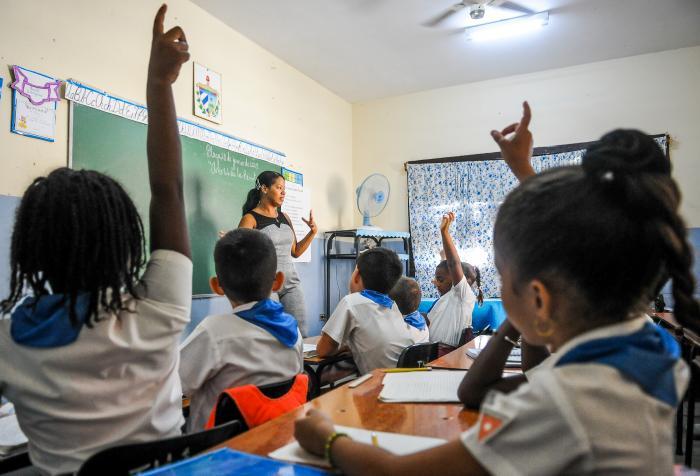Naima Trujillo Barreto, Cuba’s Minister of Education, has announced that the 2025-2026 academic year will mark a pivotal moment in the nation’s educational reform efforts. Speaking at a press conference, she revealed that over 1.53 million students across various levels of general education will commence the new school year on September 1st. This year is particularly significant as it introduces a comprehensive curricular transformation for the final grades of the III Perfectioning of the Education System.
博客
-
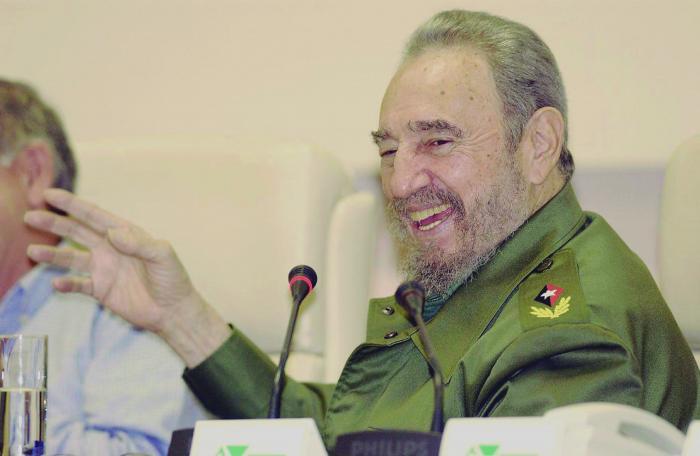
What should we do on Fidel’s centenary?
As the centennial of Fidel Castro’s birth approaches on August 13, 2026, it is imperative to reflect on his profound impact on Cuba and the world. Castro, a towering figure in revolutionary history, reshaped the destiny of a small island nation just 90 miles from the United States, defying the stigmas often associated with Third World countries. His life, work, and humanist thought form an inexhaustible reservoir of knowledge and wisdom, offering lessons that transcend time and geography.
-
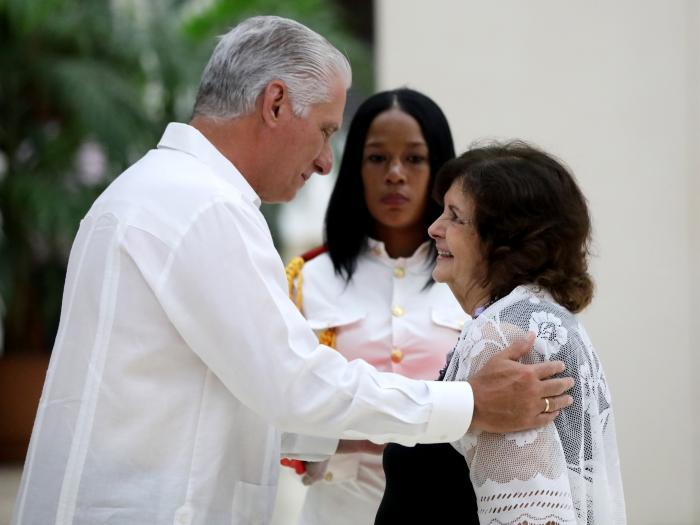
Cuban women are the guiding force behind the country’s legacy
The Federation of Cuban Women (FMC) marked its 65th anniversary with a prestigious awards ceremony, presided over by Cuban President Miguel Díaz-Canel Bermúdez. The event celebrated the remarkable contributions of Cuban women to the nation’s values and principles. Among the honorees, Mayda Benigna Álvarez Suárez was awarded the title of Heroine of Labor of the Republic for her distinguished career in labor, politics, and social activism. Additionally, the Mariana Grajales and Ana Betancourt Orders were bestowed upon five and 19 women, respectively, by President Díaz-Canel, Prime Minister Manuel Marrero Cruz, and FMC Secretary General Teresa Amarelle Boué. The ceremony also recognized 300 women with the 23rd of August Distinction, awarded the 65th Anniversary Commemorative Stamp, and honored 101 cadres for their long-standing service to the FMC. Reflecting on the pivotal role of women in Cuba’s history, the late revolutionary leader Fidel Castro Ruz emphasized the necessity of the FMC to advocate for women’s interests and enhance their participation in all spheres of life. The event underscored the enduring legacy of the FMC and its commitment to fostering a just and equitable society.
-
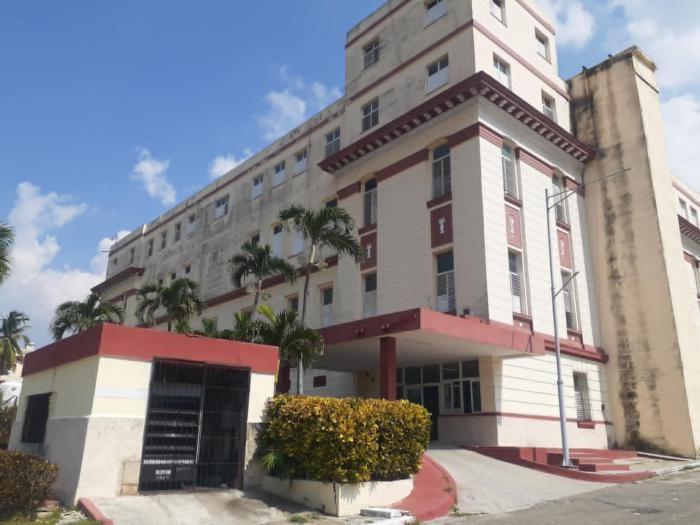
Neurotrauma Center Created for Western Cuba
The Calixto García Clinical-Surgical Teaching Hospital in Havana has unveiled a state-of-the-art neurosurgery center, marking a significant milestone in Cuba’s healthcare landscape. The newly established Western Cuba Neurotrauma Center, operational in under 72 days, is equipped with cutting-edge technology to address complex neurosurgical cases. The facility boasts three high-tech operating rooms, advanced microscopes, endoscopic towers for minimally invasive procedures, and two specialized hospitalization wards. The center’s design ensures seamless patient care by placing intensive and intermediate care units on adjacent floors, reducing transfer risks.
Dr. Ahmed Rubier Ortega, the center’s director, emphasized its role as a national hub for treating polytrauma cases, craniospinal injuries, tumors, and herniated discs. Supported by an advanced imaging department, the center centralizes neurosurgical care on a single floor, enhancing efficiency and patient outcomes.
Iliovanys Bentancourt Plaza, the hospital’s General Director, highlighted the Ministry of Public Health’s (MINSAP) commitment to funding the project despite global economic challenges. Raquel Olivera Hernández, Deputy Director of Logistics, praised the collaborative effort behind the center’s creation, calling it a testament to resilience and optimal resource management. The facility also introduces air-conditioned wards and caregiver support for home rehabilitation, ensuring comprehensive patient care while adhering to strict health protocols.
-
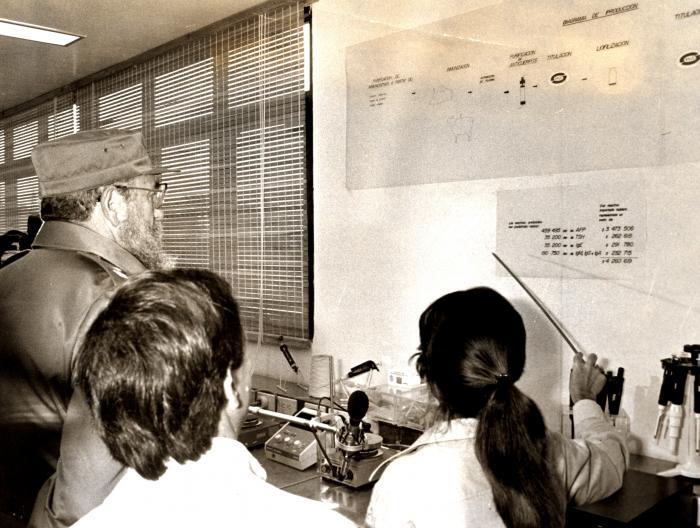
In Fidel’s forward-thinking vision lies the root of a scientific feat
Five years ago, on August 19, 2020, Cuba marked a historic milestone in its fight against COVID-19. Just months after detecting its first case, the nation unveiled its first vaccine candidate, Soberana, a testament to the strategic foresight of Fidel Castro in developing Cuba’s biotechnology industry. This achievement was rooted in the creation of Havana’s Western Scientific Pole, which adopted a closed-cycle system of research, development, production, and commercialization, enabling rapid scientific progress. Dr. Vicente Vérez Bencomo, Director of the Finlay Institute of Vaccines (IFV), presented the vaccine candidate to President Miguel Díaz-Canel and the National Expert Group for pandemic response. The announcement, though anticipated, renewed hope in Cuba’s scientific capabilities. Clinical trials for Soberana began on August 24, 2020, after receiving authorization from Cuba’s Center for State Control of Medicines (Cecmed). The vaccine’s development was a collaborative effort involving young scientists, institutions like the Center for Molecular Immunology, and the University of Havana’s Faculty of Chemistry. By mid-2021, both Soberana and Abdala, another Cuban vaccine, were authorized for public use. The rapid development and deployment of these vaccines showcased Cuba’s scientific rigor and commitment to sovereignty. Today, IFV continues to innovate, developing pneumococcal and multivalent meningococcal vaccines, while exploring MRNA technology for future epidemic preparedness.
-
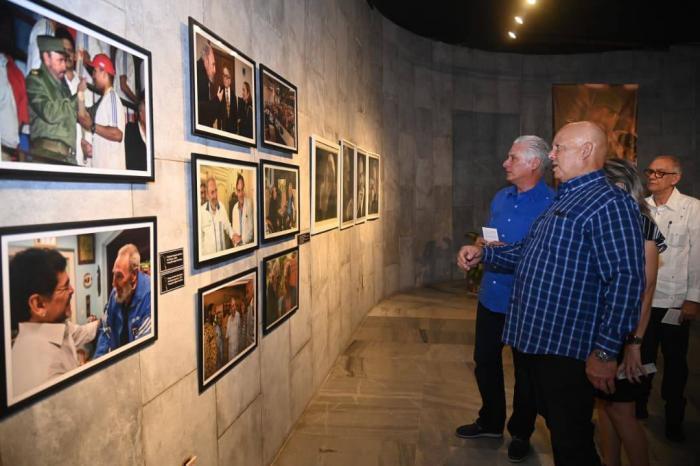
A qualitative leap in our tradition of struggle
In a significant ceremony held at the José Martí Memorial, Cuban President Miguel Díaz-Canel Bermúdez, also the First Secretary of the Central Committee of the Party, led the centenary celebration of the First Communist Party of Cuba. The event underscored the party’s foundational role in the nation’s history, likened to a vital ring in the trunk of a tree symbolizing Cuba’s national development. Rigoberto Santiesteban Reina, President of the Institute of Cuban History, emphasized the party’s mission to guide the proletariat under the ideological trends that have shaped the country’s quest for profound changes, blending the best of independence traditions and Marxism. Elvis Raúl Rodríguez, PhD in Historical Sciences and Vice-President of the IHC, highlighted the pivotal moment of August 16, 1925, marking a qualitative leap in Cuba’s years of struggle. The ceremony also featured the inauguration of a photographic exhibition allegorical to the date. Earlier, President Díaz-Canel visited ‘All the Glory of the World,’ a photographic exhibition by Alex Castro, which opened on August 13 at the Memorial. The event was attended by key political figures, including José Amado Ricardo Guerra, Member of the Political Bureau and Secretary of the Council of Ministers, and other leaders from the Party, the UJC, the Revolutionary Armed Forces, and the Ministry of the Interior.
-
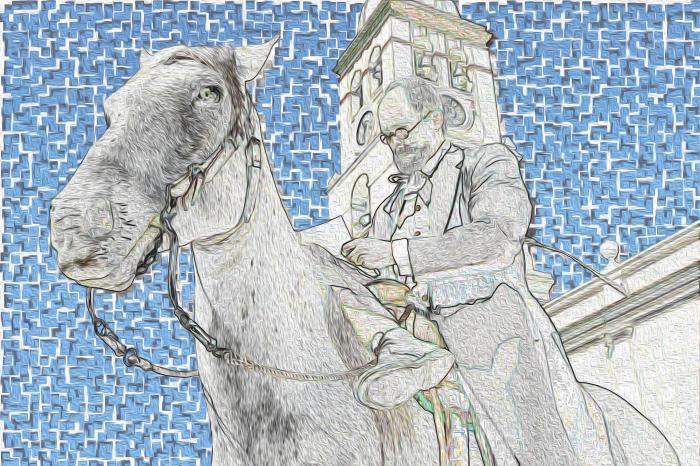
Perucho’s last march
On the morning of August 17, 1870, in Santiago de Cuba, the dawn was shattered by the roll of drums. The Regiment of the Crown, with their polished boots and Remington rifles, assembled in the Plaza de Dolores. Their mission was clear: the execution of the insurgent leaders at the old slaughterhouse, a site that had witnessed the demise of many independence dreams. Among the condemned was Major General Pedro Felipe Figueredo Cisneros, known as Perucho, a key figure in the Cuban independence movement and the composer of the Cuban National Anthem, ‘La Bayamesa.’
Perucho, suffering from ulcerated feet that rendered him unable to walk, was bound in handcuffs but not in spirit. When ordered to walk to his execution, he retorted with dignity, ‘Can’t you see I can’t? Bring me a car.’ In a mocking gesture, the Spanish officer sent for a donkey instead. Perucho, with a touch of irony, remarked, ‘I will not be the first redeemer that rides on an ass.’ The donkey, seemingly aware of its symbolic burden, carried Perucho slowly and gallantly to the execution site.
At 6:20 a.m., a 25-man platoon stood ready. Beside Perucho were Rodrigo and Ignacio Tamayo, father and son, standing erect. In a poignant moment, Rodrigo extended his handcuffed hands to bless his son before the shots rang out. The officer’s command cut through the humid air: ‘Prepare!… Aim!… Fire!’ The thunderous discharges felled the three men, their bodies falling like flags unfurled for the last time. Perucho’s blood, the patriot who had ignited the spirit of the Bayamo revolution, bathed the earth.
155 years later, the echo of that morning still resonates. The bullets may have silenced Perucho’s body, but his words, immortalized in the Cuban National Anthem, continue to inspire. Perucho, serene in the face of death, rejected cowardly forgiveness and, with his final verses, ‘To die for the Homeland is to live,’ transformed lead into seed, sowing the enduring spirit of Cuban independence.
-
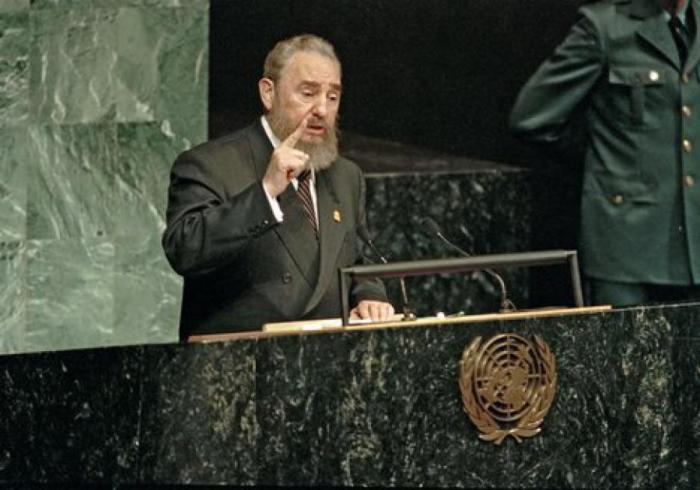
“The struggle for peace is the struggle for the survival of humanity”
Fidel Castro Ruz, the historic leader of the Cuban Revolution, is celebrated as a staunch advocate for multilateralism and a tireless champion of global peace. His vision transcended mere rhetoric, emphasizing that true peace required a radical restructuring of the United Nations system to ensure equitable representation for all nations, irrespective of their political or ideological affiliations. Castro’s speeches, particularly his landmark address at the UN General Assembly in 1960, underscored the necessity of eradicating neocolonialism, economic exploitation, and systemic injustices to achieve lasting peace. He argued that peace was inseparable from social justice, sovereignty, and the end of colonialism. His influence extended beyond words, as he spearheaded concrete actions such as Cuba’s internationalist missions, which provided medical, educational, and military support to developing nations. Castro’s leadership in the Non-Aligned Movement further solidified his commitment to fostering unity among Southern countries against Northern economic domination. His legacy continues to inspire social movements, progressive leaders, and nations striving for a more equitable world order. The Cuban government remains steadfast in its pursuit of inclusive multilateralism and global peace, embodying the principles Castro championed throughout his life.
-

GRANMA REBELDE INTERNATIONAL FESTIVAL: CELEBRATING 60 YEARS OF VOICE AND REVOLUTION!
The Communist Party of Cuba (PCC) and the Young Communist League have announced the Granma Rebelde International Festival, set to take place in Havana from October 17 to 20, 2025. This landmark event commemorates the 60th anniversaries of Granma and Juventud Rebelde, two iconic newspapers established by Fidel Castro, the revered leader of the Cuban Revolution. The Festival aims to serve as a dynamic platform for political, academic, cultural, and grassroots exchanges, fostering dialogue, solidarity, and cooperation grounded in critical thought. It will address pressing global challenges to peace and social justice, uniting participants in a shared commitment to progressive ideals. The event invites communist, left-wing, and progressive youth organizations, social movements, media outlets, and academic and cultural institutions to join in confronting media manipulation and imperialist tactics that distort realities and fuel fascism and neocolonialism. Granma and Juventud Rebelde, steadfast in their dedication to truth and unity, have played pivotal roles in advancing Cuba’s socialist project. The Festival will culminate on October 20, coinciding with Cuban Culture Day, and will also honor the upcoming centennial of Fidel Castro’s birth in August 2026. Additionally, Havana will host the 3rd International Meeting of Theoretical Publications of Left Parties and Movements from October 15 to 17, providing a vital forum for discussing emerging political theories and practices. The PCC and Young Communist League eagerly anticipate welcoming participants to Havana for this historic celebration.
-
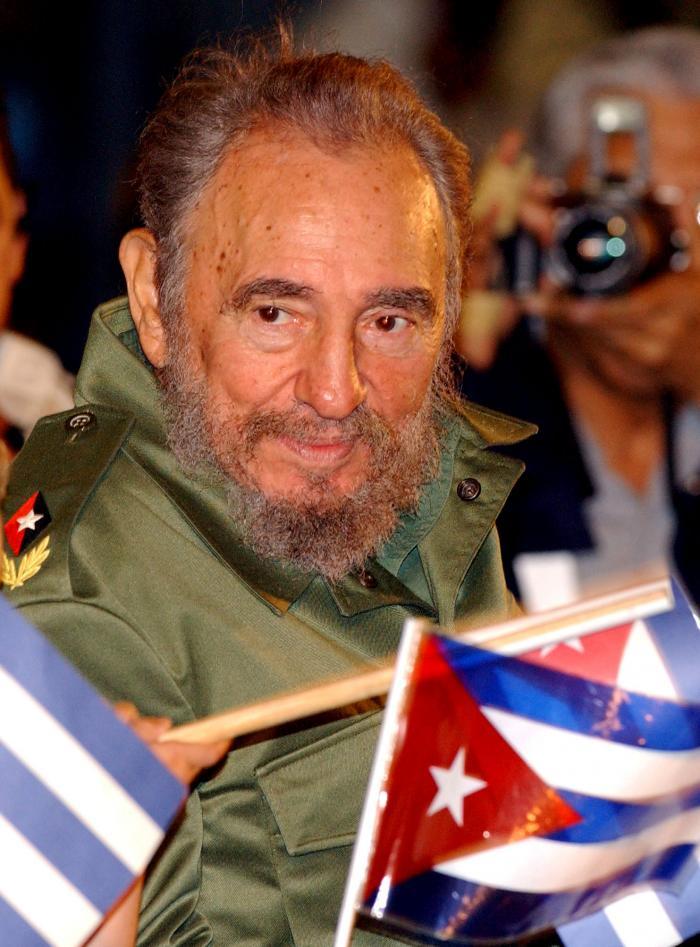
It is not nostalgia
In the heart of Cuba, the legacy of Fidel Castro continues to resonate, not as a relic of the past but as a living force that shapes the present and future. This is not about nostalgia or blind admiration, but about understanding the profound impact of a leader who embodied both extraordinary vision and human imperfection. Fidel’s name evokes a complex tapestry of emotions—hope, struggle, resilience, and the relentless pursuit of happiness in the face of adversity.
